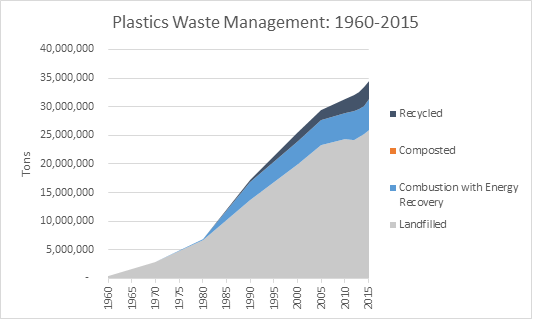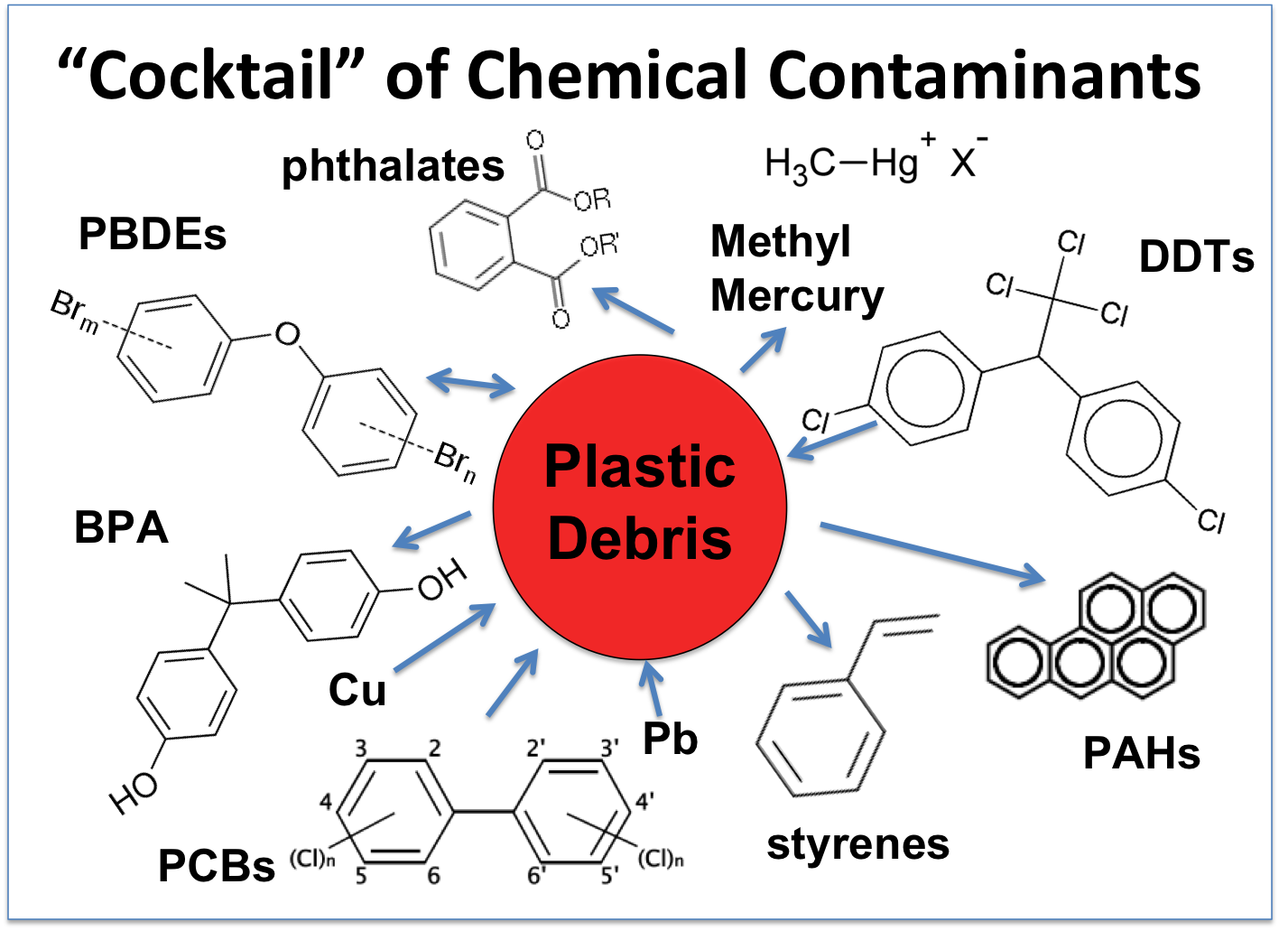Plastic pollution has been an issue since 1960 when plastic pieces were first discovered in the ocean. Even with people knowing about it, the production of plastic along with plastic waste hasn’t gone down. Out of the 420 million tons of plastic produced
in 2015, 35m tons became plastic waste and only 3.14m tons (9.10%) of it were recycled. The problem is that 8.8m tons of plastic waste are added into the ocean each year and there are already 165m tons of plastic in the ocean as of 2014.
Toxic chemicals and plastic are entering the human body through marine animals and the water we drink.
Plastic which find their way into the ocean will stay there forever because they are not degradable. This means that plastic will instead decay into tiny pieces called microplastics (measuring 100 nanometers to 5 millimeters) as time goes by due to ultraviolet
rays from the sun and the harsh environment of the ocean. Microplastic are dangerous as they have the ability to attach toxic chemicals floating around in the ocean to itself such as DDTs, an organic compound used as an insecticide. Smaller
fish would ingest the plastic by accident, assuming they were food which could get stuck in their digestive tract or stay in their stomachs, causing starvation. The toxic chemicals attached to the microplastic in the stomach including
copper and lead (heavy metals) would either leave through the digestive tract or get absorbed by the organism. This can cause heavy metal poisoning when the fish’s tissues are accumulated with these metals. If a predator consumes these
fish, the toxic chemical would add up as the food chain moves up.
People may end up eating contaminated fish and have negative health impacts. A study was conducted where eight people from different countries were to keep a food diary for a week and provide a feces sample. Scientists found nine kinds of plastic, the
most common were polypropylene (PP) and polyethylene terephthalate (PET), which are used to make plastic bottles. This reveals that microplastic is getting into human’s digestive system and can cause damage to the intestinal villi as well
as cause hepatic stress and distortion of iron absorption. In addition, during digestion, plastic called nanoplastic (less than 100 nanometers) are small enough to pass through the intestinal wall and enter the bloodstream. In a research
where scientists injected hamsters with plastic, they found that blood clots are formed as plastic accumulates in the bloodstream. Blood clots can prevent oxygen from reaching major organs such as the lungs, heart, and brain causing a
heart attack or stroke. These are some of the consequences from plastic ending up in the human body.
Plastic has another route to the inside of a body and that is through drinking water whether it’s tap water or bottled water. Orb media, a non profit organization, conducted research on plastic in bottled water. They tested 259 bottles of water from 11
brands, examples are Aqua, Aquafina, and Bisleri, from 9 different countries. The result was that 93 percent of the 259 bottles contained microplastic that came from the water itself and there are 10.4 plastic particles (particles larger
than 0.1mm) per liter of water average which is twice as much found in tap water, another research by Orb media. As mentioned before, these particles may also contain toxic chemicals like those in the ocean and is able to cause the same
effects. This is more serious of an issue because people drink water more often than eating fish; it’s easier to get dehydrated than hungry.
People are consuming plastic through marine animals and from the water that they are polluting with plastic waste. Even though there haven’t been many people getting health problems from eating plastic indirectly, the amount of plastic entering the human’s
digestive system will increase as time passes due to continuous plastic pollution. Therefore, there is an urgent need to stop plastic waste from entering the ocean along with making sure plastics aren’t in the water we drink from. Otherwise,
it’ll be too late when more people being affected by plastic start arising.




